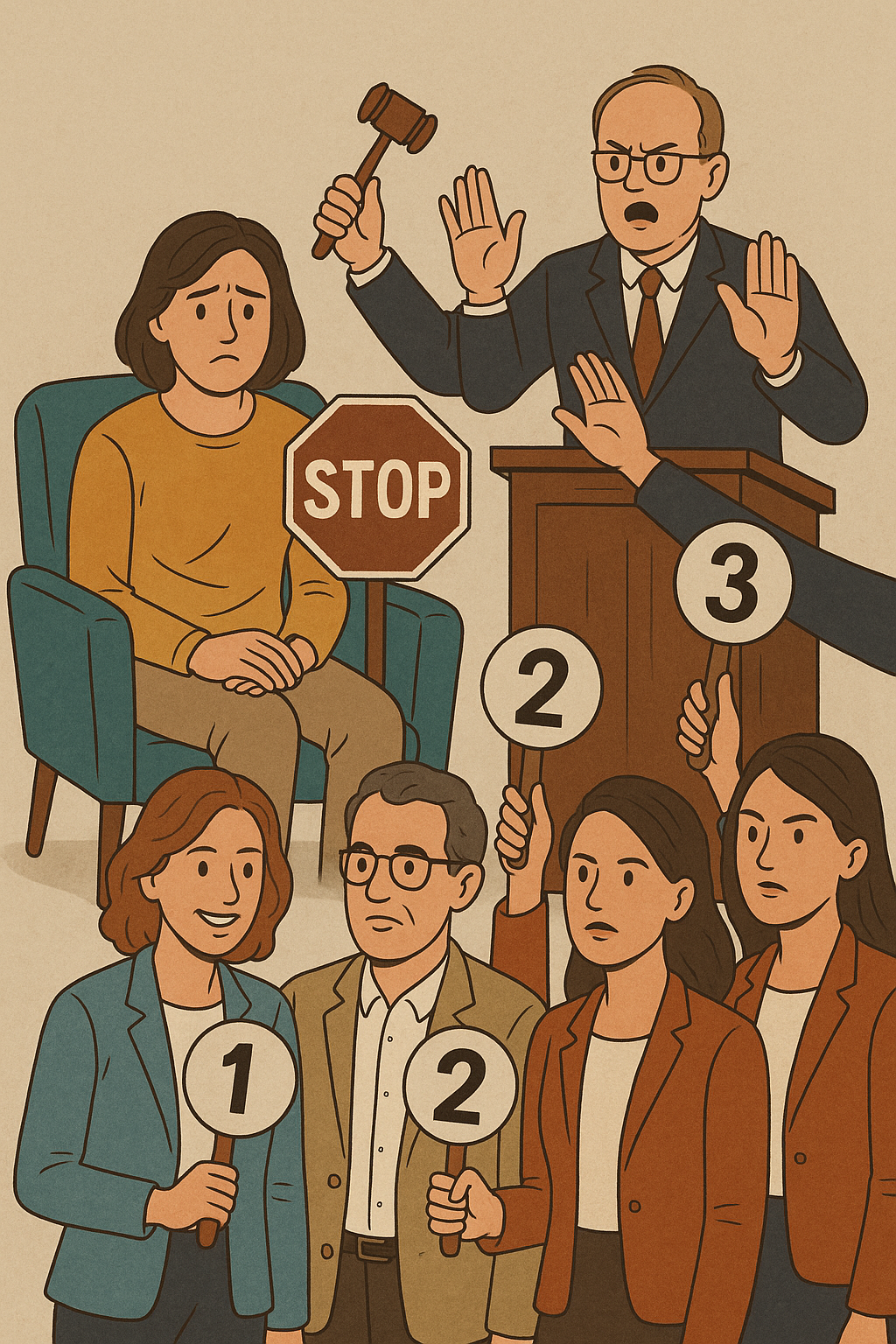Nashville Therapists: Stop The Client Auction!!!!
“Calling Nashville Counselors Back to Genuineness, Growth, and Courage”

Middle Tennessee therapists, I need to say something that might sting.
(Disclaimer: this may be a total blind spot for me. I may be missing something huge. And yes, I’m probably an idiot for posting this. But here we go anyway.)
SINCE WHEN DID WE START BIDDING ON HUMANS?
If you’re referring out a client just because you “don’t match them enough” — STOP IT.
Since when are we supposed to be just like our clients? If anything, being too much like them actually hurts them.
Carl Rogers famously said: “What is most personal is most universal.” Our uniqueness is what connects us. We don’t need to be replicas of our clients to serve them.
And if Mr. Fred Rogers could sit on TV and look straight into the eyes of a child and say, “The greatest gift you ever give is your honest self,” then surely we as therapists can offer the same — our genuine, imperfect selves — instead of shopping for the perfect client fit.
A WORD ON REFERRALS
Let me be clear: there are absolutely times when referring out is the most ethical, appropriate choice. If you know you don’t have the training or experience in something highly specialized — like OCD (and let’s be honest, OCD is tricky and not many of us do it well) — then yes, refer out. That’s good practice.
BUT! Be careful you’re not referring out too much. Sometimes it’s not about specialization, it’s about your own discomfort. And discomfort is where growth happens — for both the client and for you.
There’s mutual benefit in the therapeutic relationship. Clients stretch us. They sharpen us. They help us as much as we help them. If you always bow out when it feels messy or unfamiliar, you’re robbing both of you of that growth.
LET’S TALK ABOUT OUR EMBARRASSING HABITS
Here’s mine: when I can’t understand the lyrics to a mainstream pop song, I listen to the Kidz Bop version. Slowed down, clearer, easier to grasp. And then — tada! — I can sing along like I knew it all along.
That’s what some of us are doing with clients. Picking the “Kidz Bop” version instead of doing the hard work of listening closely to the messy, complicated original. It’s easier. It feels safer. But it’s not the real song.
WHY THIS WHOLE REFERRAL MARKET IS A PROBLEM
We’re competing with each other while pretending not to.
We’re reducing clients to demographics and bullet points.
We’re outsourcing our own discomfort instead of growing through it.
And when it comes to supervision? Same story. People seeking supervisors like they’re shopping for a therapist-Tinder match: “Must be this kind of person, with this kind of vibe…” STOP.
CARL ROGERS REMINDER
He gave us three core conditions:
- Unconditional positive regard.
- Congruence (genuineness).
- Empathy.
And he didn’t just theorize them — he lived them.
Rogers wrote: “It does mean, however, that the therapist denies to himself none of the feelings he is experiencing and is willing to experience transparently any persistent feelings that exist in the relationship and let these be known to his client.”
That’s radical honesty. That’s courage. That’s the opposite of this “auction block” behavior.
Or as Fred Rogers put it: “Honesty is often very hard. The truth is often painful. But the freedom it can bring is worth the trying.”
THIS. This is our calling. Not comfort. Not convenience. Not competition.
CALL TO ACTION
So please, Nashville:
- STOP coddling.
- STOP bidding.
- STOP thinking you need the perfect training or the perfect client match.
JUST SHOW UP.
Be genuine. Be present. Let the relationship do its work.
SUPERVISORS & COUNSELORS
I’m a supervisor. I have availability. If you want supervision that will challenge you, stretch you, and call you back to the basics — reach out.
A NOTE ON RADICAL GENUINENESS
You might notice the formatting here — the dashes, the bold letters, the all-caps. Someone told me that’s the “tell” that ChatGPT helped write this.
Well… it did. And I decided to leave it in.
Because hiding that would be the opposite of what I’m asking from all of you: to be real, transparent, and willing to risk honesty in your work. This is me practicing what I preach.
FINAL DISCLAIMERS
This is blunt. It may offend.
It may also be my blind spot.
But if even one of you zooms out and reconsiders how we’re practicing in Middle TN, it’s worth me looking like an idiot.




